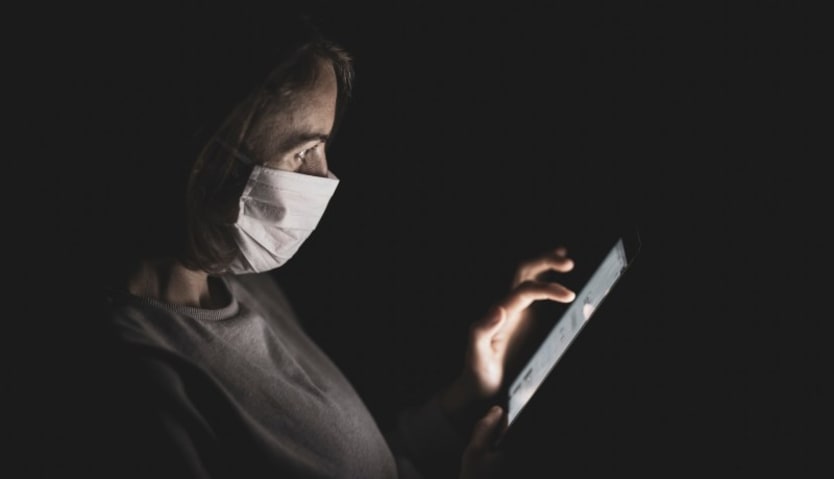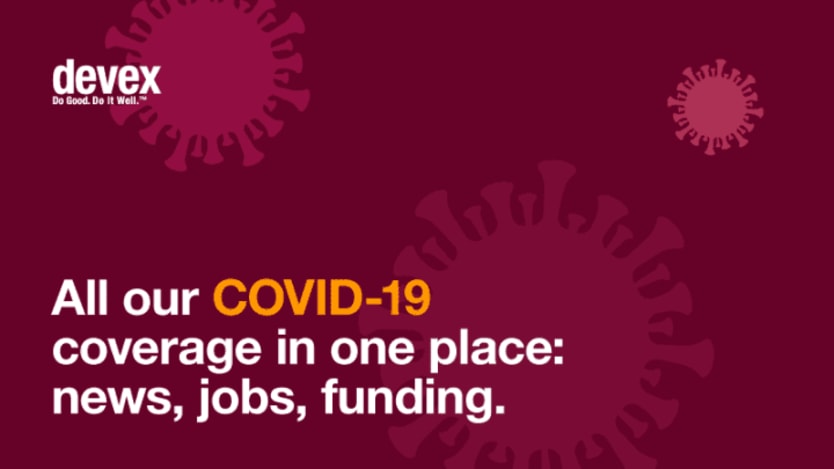Opinion: Let the learning begin — a WHO open-access platform could transform COVID-19 response

The world is undergoing an unprecedented social, economic, and health experiment. We are all searching for the most effective ways to control COVID-19 while safely returning to a more normal life, needed for the human spirit and economic survival and recovery. Every day brings new evidence, yet it is scattered around the world — in newspapers and magazines, scientific journals and reports from governments, international organizations, and civil society.
Information is only as good as our ability to find, understand, and use it. This treasure-trove of evidence is unorganized, sometimes inaccessible, and of varying quality, leaving policymakers, health workers, and civil society without vital information that could save lives and mitigate harms.
Data around COVID-19 is a mess and here's why that matters
Data plays a critical role in the COVID-19 response. But gaps in data could distort predictions and response to the pandemic.
As the world’s global health agency, the World Health Organization should bring meaning and order to this information by establishing an open-access online platform for sharing and accessing lessons on responding to all dimensions of the coronavirus pandemic. This lifesaving, relatively low-cost service to the world is eminently achievable — a global “best buy.” It could avoid politics and geopolitical rivalries while demonstrating the value of global cooperation in the midst of a pandemic marked by destructive competition.
The natural body to develop this platform is WHO, already the world’s go-to source for COVID-19 information, from its science and technical guidance to daily situation reports. The information portal would complement WHO’s technical guidance and gateway for coronavirus-related scientific findings. WHO’s governing authority, the World Health Assembly, called for states to share COVID-19 “knowledge, lessons learned, experiences, best practices, [and] data.” This platform would ensure that information’s utility.
Key platform elements would include:
1. A broad scope. The portal would encompass the full scope of COVID-19’s health, social, and economic impacts, from the epidemiology of transmission and approaches to containing the virus to safely opening economies and strengthening social safety nets.
It would offer lessons on health worker protection and health system resilience and focus on equity and measures to protect the health and well-being of vulnerable and marginalized populations, including prison populations, the elderly, people who are homeless, migrant workers, and people with disabilities. The portal would reach areas as diverse as exposure notification apps, health worker innovations, mitigating the rise in domestic violence, and protecting people in multiperson households.
2. Diverse sources. The portal would include peer-reviewed scientific literature, articles from credible journalistic outlets, and reports and analysis from academics, civil society, governments, think tanks, and foundations.
3. Experiences, guidelines, and proposals. The database could include national, local, and organizational experiences, drawing out lessons learned. It could further encompass practical guidelines adopted by different countries and localities, as well as professional organizations and associations. These could range from metrics to guide — and reverse — economic reopenings to safely operating dental practices and restaurants. The platform could also include evidence-based proposals for better responding to COVID-19 as our knowledge grows.
4. User-friendliness and relevance. This well-organized portal would be easily searchable by topic and geography, enabling users to find information most relevant to their needs and contexts. They could learn details and challenges of successful initiatives — and what has not worked. Where possible, sources would include contact details for further information.
5. Reliability and accuracy. The information must be reliable and accurate. When possible, WHO should evaluate it by asking: How strong is the science? What lessons can be learned and applied? Where are the gaps in evidence and how can the international community close those evidentiary gaps? WHO stands out for the trust and legitimacy it can bring to this task.
Further, the platform would be an invaluable research tool. Researchers could uncover new connections and better understand successes, providing valuable new recommendations. WHO itself could evaluate this information to inform key actions in its technical guidance, distill and report on good practices, and offer best buys for the most impact with limited resources. WHO could link its own documents to specific examples, providing further guidance.
Given the breadth of information, WHO could partner with trusted news organizations to identify sources and bring other United Nations agencies into the partnership. As WHO and partners establish the platform, WHO could conduct a rapid needs assessment and solicit ideas from members, maximizing the portal’s value.
WHO could convene an independent panel to verify information and decide what to include. Panelists would be demographically diverse and include health authorities, journalists, academic experts, and civil society. The panel would ensure that political sensitivities do not influence what material is added or excluded. It could keep WHO removed from any decisions that may appear to have political overtones or be critical of any governments, such as lessons on unsuccessful approaches or whether certain information is not included because of questionable accuracy.
These first months of the COVID-19 pandemic have been notable for injustices, nationalistic responses, and missed opportunities. By establishing such an information platform, WHO will remind us that this pandemic is best fought together — all for all, sharing with and learning from each other. As in the scientific realm and our communities, cooperation in the policy realm is what will get us through this pandemic.

Search for articles
Most Read
- 1
- 2
- 3
- 4
- 5







